
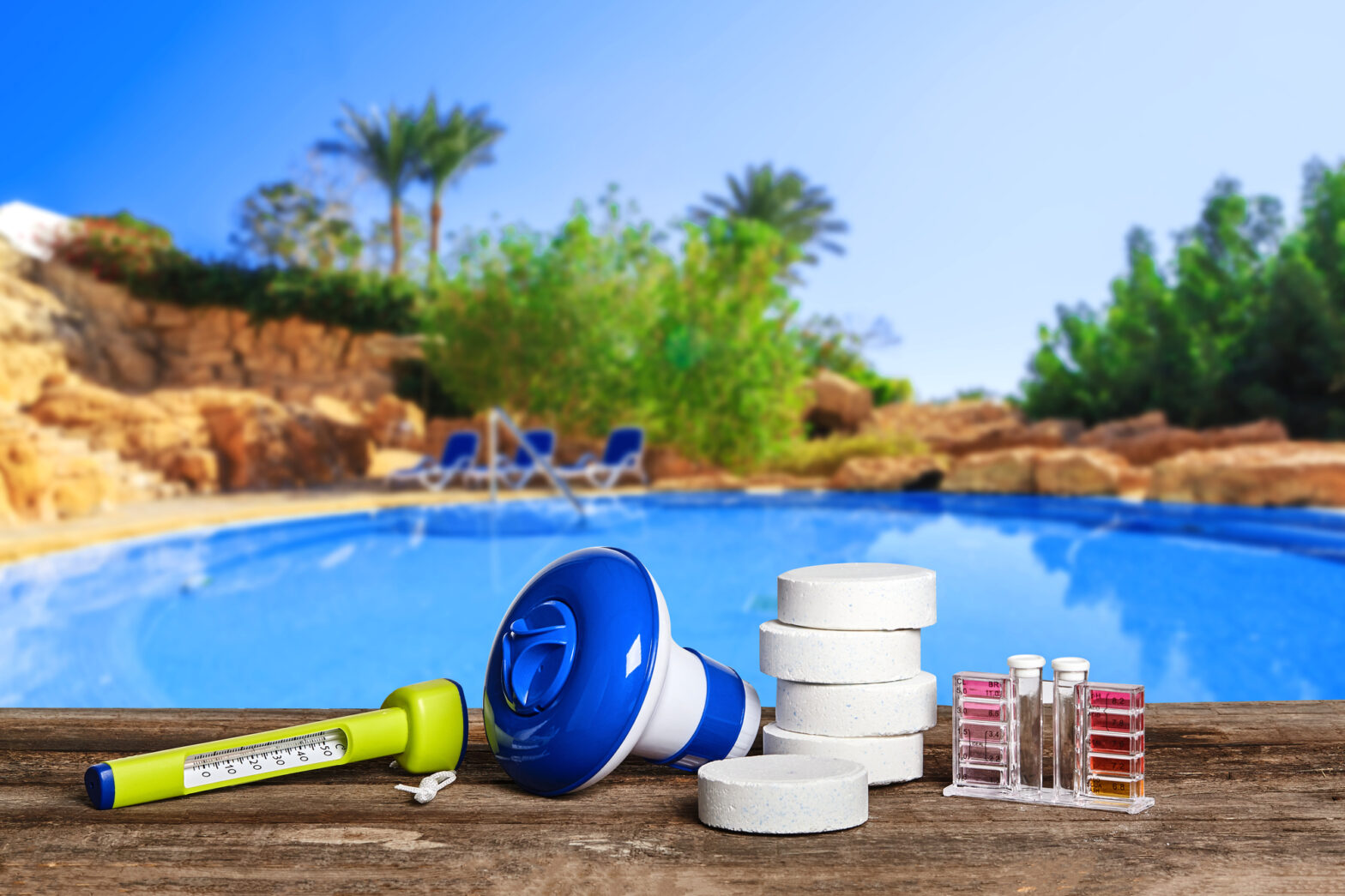
For a summer full of swimming, you need to keep your pool water balanced and clean. This can be especially hard when opening after the winter, but it needs to be done throughout the summer. With issues like maintaining proper ph levels, calcium hardness levels, and preventing algae blooms, it's important to balance pool water, but it can be difficult. Here are the basics to help you. There are a few main categories of pool chemicals you need. Always follow manufacturer's recommendations for use, and consult with an expert on anything you are not sure about. These chemicals clean and disinfect the water by increasing levels of free chlorine.You can have a chlorine-based pool shock or chlorine-free pool shock; confirm with your pool care provider or an expert to find out which you should use and what brands are recommended. Phosphate removers eliminate phosphates, which is a key food source for algae. These chemicals help level out pH, alkalinity, calcium hardness, and chlorine levels. Alkalinity increasers, such as sodium bicarbonate or sodium carbonate (soda ash), raise alkalinity levels if you have a low pH, while muriatic acid or sodium bisulphate (dry acid) or muriatic acid raise acidity if you have high pH. Calcium hardness increasers like calcium chloride raise calcium hardness if levels drop under 150 parts per million (ppm). A chlorine neutralizer can help reduce free chlorine, to avoid the irritating and corrosive effects of too much chlorine. Oxidizers shock your pool to clear sunscreen, oils, and organic materials. A pool test may indicate good chlorine levels but your pool system still isn't working as it should. There is a range of other specialty chemicals to keep your pool healthy. Flocculants clump organic particles so they can be removed easily. Algaecides stop algae growth on pool walls. Filter cleaners keep this important pool equipment clean and working properly, by clearing oil, dirt and debris. If pH or alkalinity is low, chlorine levels drop. Low pH will corrode pool equipment and be irritating to eyes and skin. Balancing your pool water with the right chemicals can adjust this. On the other hand, if pH or total alkalinity is high, chlorine can't work properly and will cloud the water. Total alkalinity acts as a protectant or overall balancer of the other pool chemicals. Again, the right chemicals can help restore balanced pool water. Be careful when handling these acidic chemicals, however, as they are dangerous to skin and eyes. Unstabilized chlorine in an outdoor pool will become destabilized by UV rays and not work properly. Conditioners or stabilizers such as cyanuric acid prevent this. Low calcium hardness levels lead to corroded pool surfaces. A calcium hardness increaser can help, but it's important not to overdo it, since it's difficult to lower the levels again. A pool professional can help. Check that the water level is at least halfway up to the skimmer, adding fresh water if necessary, and clear debris from pump baskets and skimmer. Next, turn on the pool pump and run it at high speed, as you can't test it accurately or balance it if it's not circulating properly. Also, ensure the pool filter is clean. First, you need to know what your existing levels are. You can get a test kit with a liquid or strip style of test. Bringing a water sample for professional testing is recommended, though. When you know what your chemical levels are, you'll know what needs adjusting. To determine the right doses, you also need to know how much water you have. If you don’t know, use the cubic footage of your pool. Always check first with an expert for recommendations on the right product for your specific pool water, quantities, and other tips. Wear protective equipment, including gloves and goggles. Always have your pool pump running on full. Chemicals need to be added in a certain order for the water, with a certain amount of time in between, for the pool chemistry to work properly. Certain chemical levels affect the balance and effectiveness of others, and you need to make sure you don't create an unintentional, dangerous chemical reaction. Always allow the recommended time in between. For your pool maintenance, consult an expert for recommended chemicals for your specific pool. First, raise total alkalinity with your recommended alkalinity increaser, raise pH with your recommended pH increaser, or lower total alkalinity and pH with a recommended pH decreaser, as necessary, according to your test results. The proper range is 80–120 ppm for total alkalinity, and 7.4–7.6 for pH. The next step is to add calcium hardness increaser to achieve the right calcium hardness level. The proper range for this is 200–400 ppm. To keep your pool clean, add your sanitizing pool chemical. Usually, this is done with chlorine tablets. If you have other pool issues, additional niche chemicals can help, such as algaecide or stain and scale chemicals for metal staining or mineral buildup. To keep your pool clean throughout the season, test and treat at least every two weeks, and have your water professionally tested monthly. Vacuum and scoop organic matter daily, or whenever it builds up, too. Another option is to just have a professional do all this for you, so you don't need to waste time on the process, and you don't need to worry about getting quantities, order of application, or timings right. People for Pools offers pool maintenance services, to get you swimming more, and wrestling with harsh chemicals less. Simplify your pool care with People for Pools. We offer swimming pool maintenance in Toronto at 647-710-8926, so you can swim more and stress less. Visit us at 1585 Britannia Rd E, Unit B3 Mississauga, ON L4W 2M4.What Pool Chemicals Do You Need?
Cleaners
Water Balancers
Oxidizers
Niche Chemicals
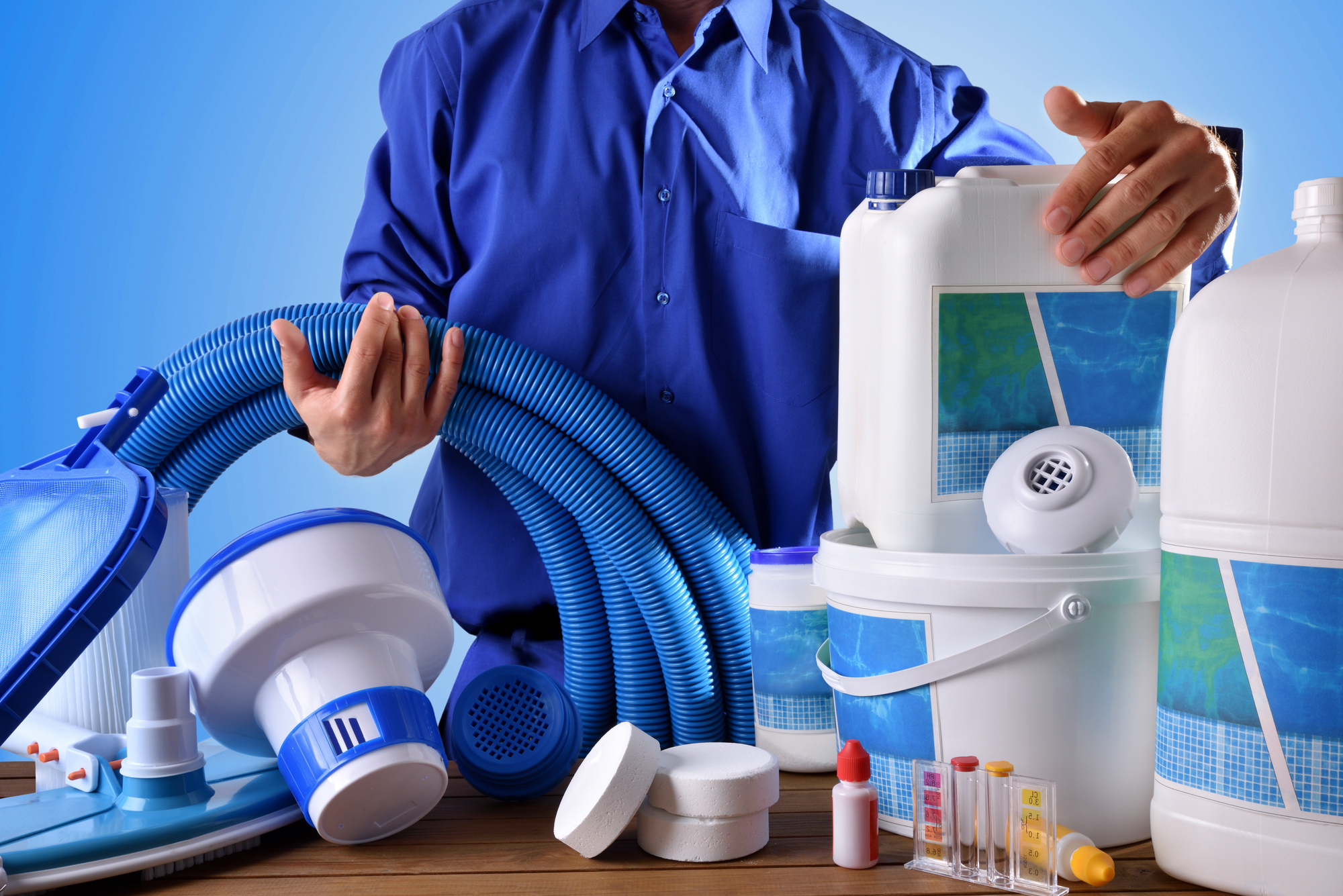
How Pool Chemicals Work
How to Balance Pool Water
Test Pool Water
Calculate Pool Volume for Needed Quantities for Pool Water Balance
Adjust Chemical Levels
Adjust Alkalinity and pH
Adjust Calcium Hardness
Add Sanitizing Chemicals / Pool Shock
Specific Problems
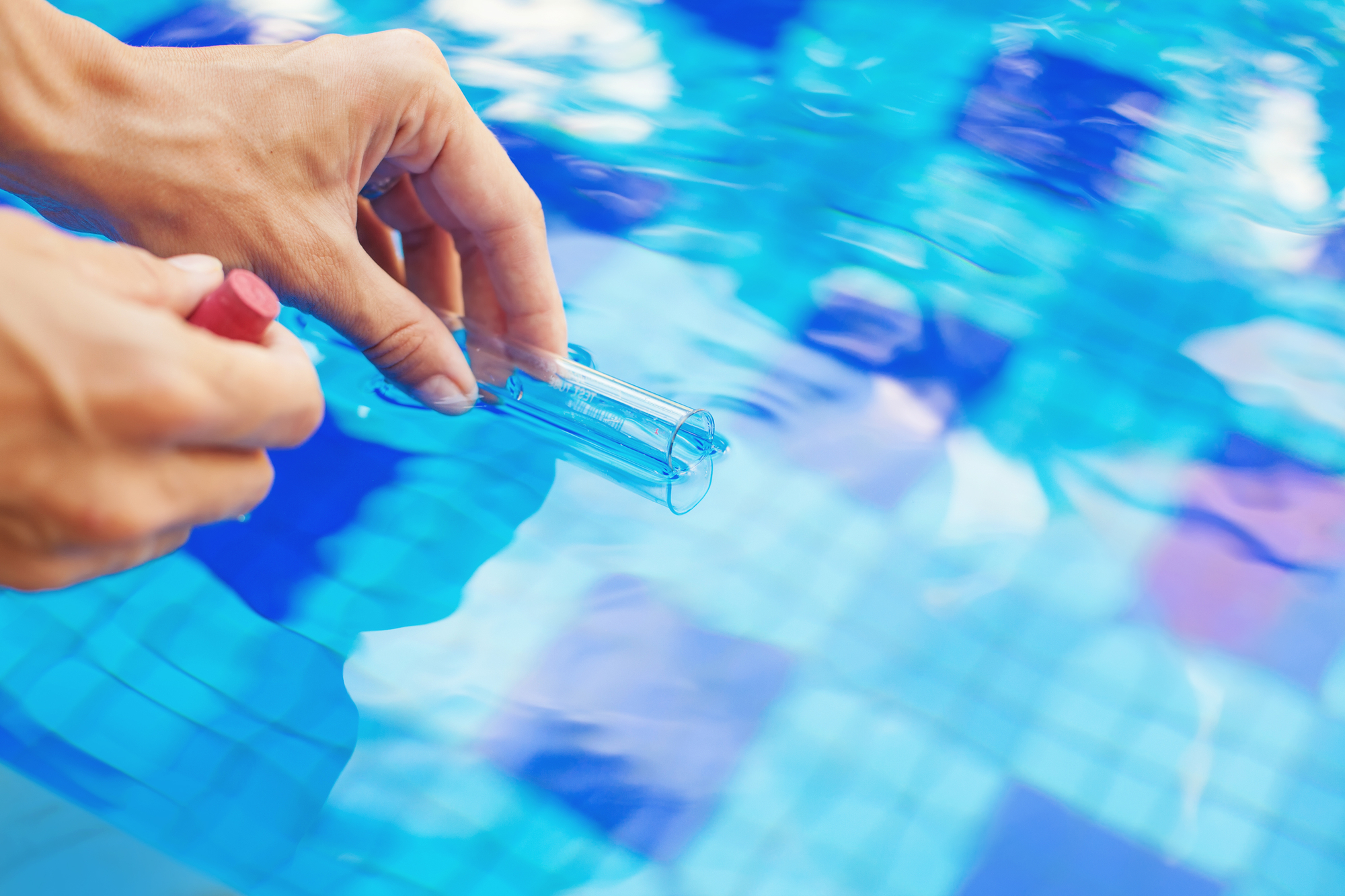
Test and Treat Regularly
Get Your Swimming Pool Water Balanced and Ready to Go with No Hassle!
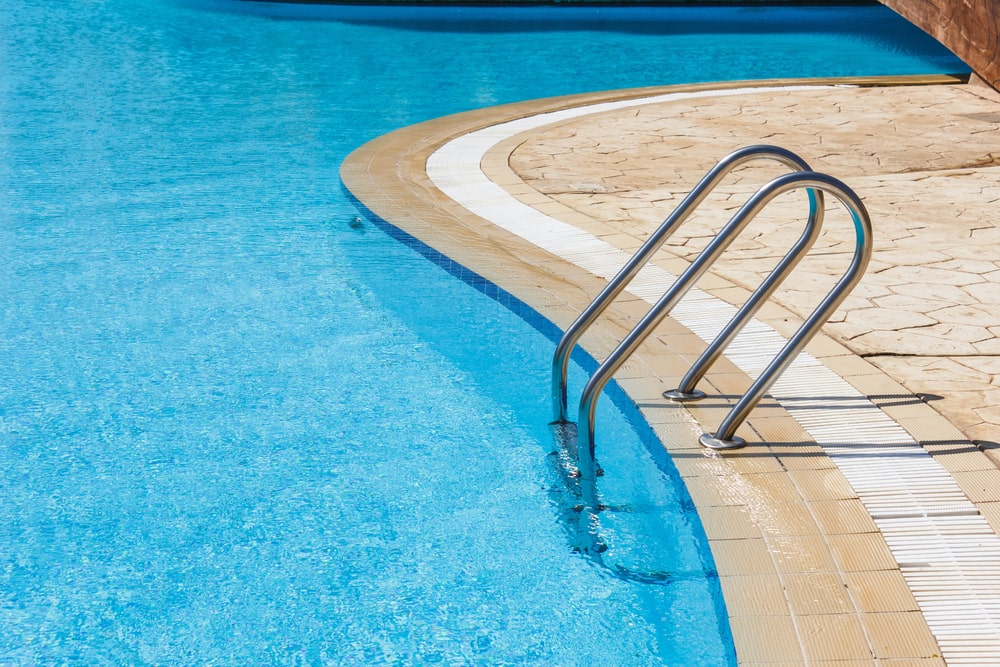
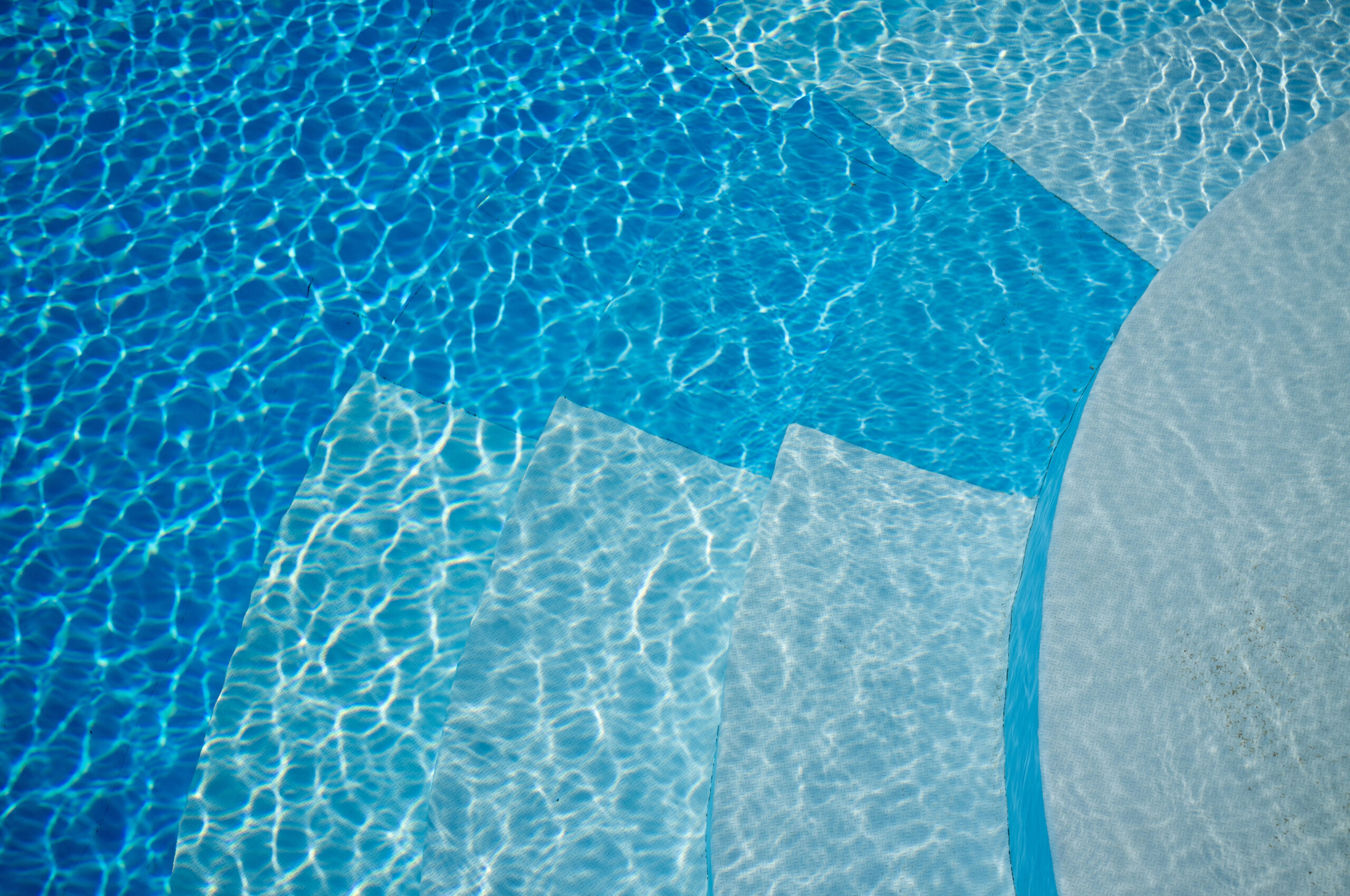
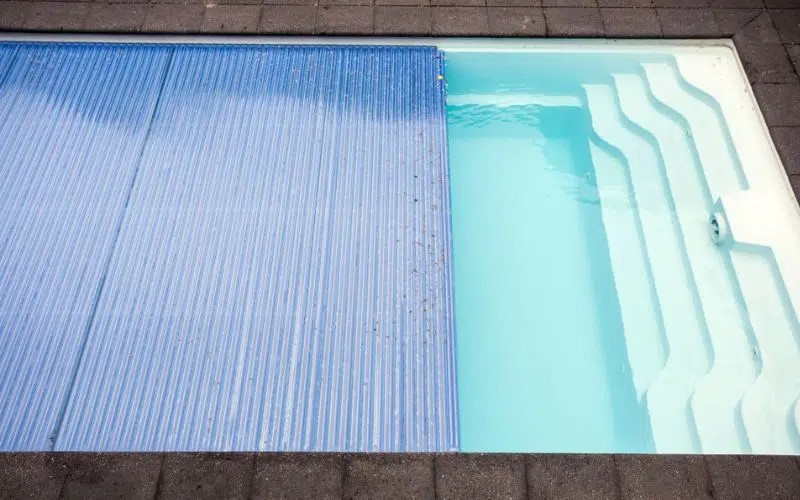
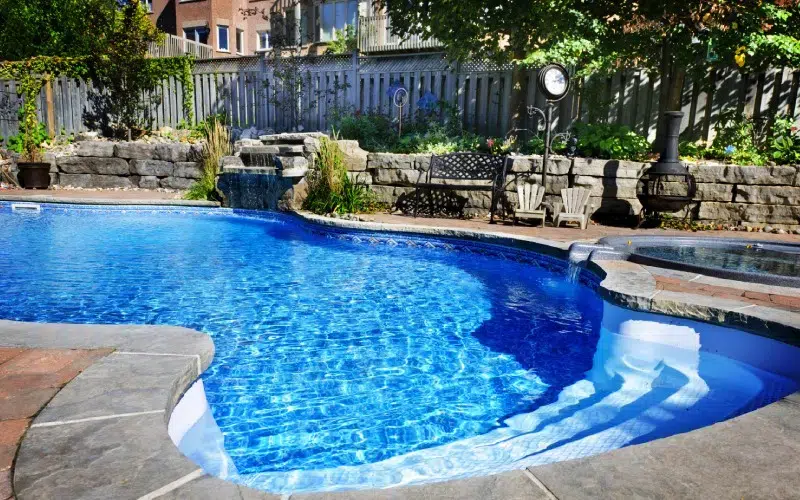
While we strive to provide as much useful information and tips as possible in our blogs, you may still have questions about your pool. That's okay! That's what we're here for. Give our team a call to discuss any questions you may have or the services you're interested in. Not only can we thoroughly answer your questions and concerns, but we can also help you regularly maintain your pool.
Give us a call, email us, or fill out and submit a form below and we'll respond promptly. We proudly service the Greater Toronto Area and can provide you with a free quote.

PEOPLE for POOLS is a professional pool company that can take care of your pool this season. Call us today to inquire about our pool maintenance service. Potential customers can receive a free quote for our services.